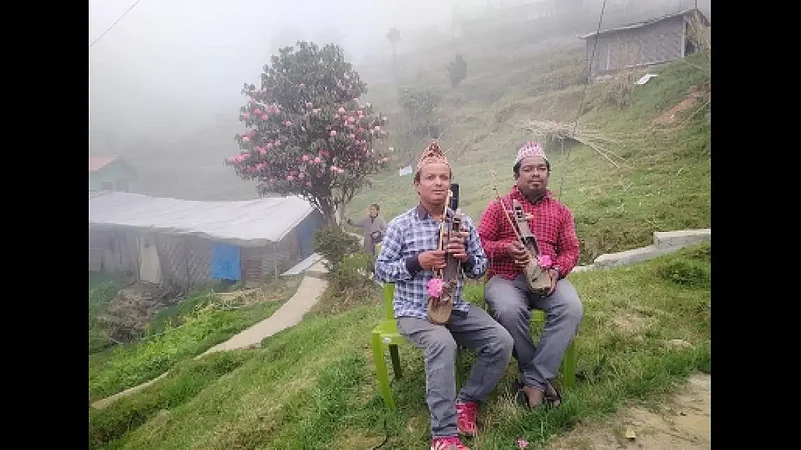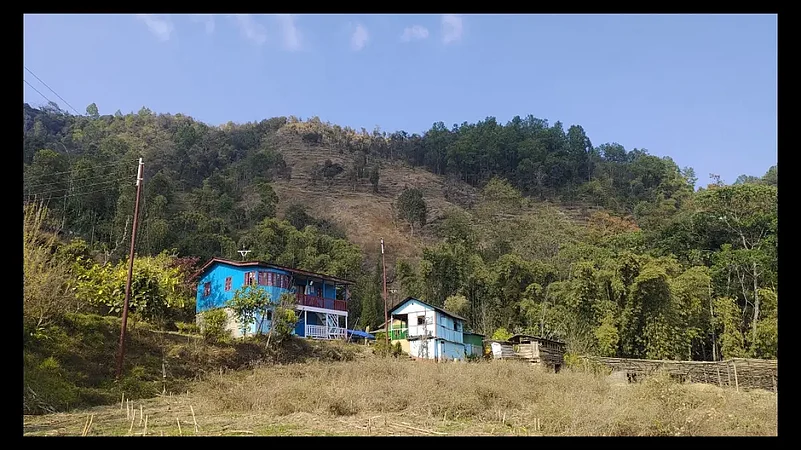India and Nepal share a long international border and it is not unusual to find the mountain people in both regions travelling to each other’s country on a regular basis for business or pilgrimage. But Sharan Gandharva and Ramesh Gandharva from Kachankawal in Nepal travel to Darjeeling for a very different reason. They come here to share their music, singing traditional compositions to the accompaniment of the Nepali ‘sarangi’ (a kind of string instrument, whose variants are found both in India and Nepal). Being farmers, they arrive outside the monsoon season and travel as itinerant musicians.

Advertisement
To most of us Darjeeling is about nostalgia woven around an old British hill station and the eponymous tea which is still grown here. But there is more to Darjeeling and its neighbouring districts, said Anirban Dutta, cofounder-explorer at Darjeeling Walks. The British may have catapulted Darjeeling to global fame but they did not discover it. The place was already inhabited by a hill tribe called the Lepchas or the Rongpas. Owing to its proximity to one of the corridors which linked India with the Silk Route, the region was also home to people from Tibet and Nepal, which has naturally fostered close cultural ties between the two countries.
Advertisement
“There is no dearth of travellers to Darjeeling. But either they retire to the luxurious tea gardens or opt for the de rigueur sightseeing trips. As a result, they often miss the multi-layered core that lies within – the hill tribes and their culture, forest villages, the culinary inheritance, and more,” explained Dutta. Which drove him and a group of like-minded people to launch Darjeeling Walks.
One of the interesting programmes they have introduced is Baithak in the Hills – Musicians in Residence. According to Dutta, the programme has two main objectives – one, to introduce travellers to Darjeeling to the traditional, indigenous music, the stories behind them, and the people who are still carrying on the practice in the face of competition from modern popular music and two, to establish a dialogue between the oral traditions of the diverse music of the eastern Himalayas and the lesser Himalayas and the institutionalized customs and practices, and the documentation of the same.

The Baithak in the Hills programme is usually held in a remote village tucked among the forested hills, where guests stay in simple but clean homestays or lodges, eat local cuisine consisting of locally produced ingredients, enjoy walks in the countryside, and listen to music sung by the in-residence folk singers. The musical sessions are interspersed with stories about the folk music of the hills, the songs being rendered, the musical instruments being used, etc.
“We could have organised the musical programmes in the urban centres,” said Dutta, “but the main idea behind hosting them in the villages is that travellers can understand the background of the songs, mostly written in a rustic setting, talking about simple lifestyles, romance, or even some incident which happened in the past.” Like songs from the repertoire of the Gandharva brothers even talk about the time when traders from Tibet would follow one of the several corridors which connected India with the famous Silk Route. Kalimpong was a key trade post on this route. It also helps to boost local economy through tourism.
Advertisement
It is not only about the folk songs but the traditional instruments too. For example, the Gandharva brothers sing to the accompaniment of the Nepali sarangi. Made of sturdy jackfruit wood, and polished with silk-smooth pine resin, these instruments are reminiscent of the ancient string instruments that evolved over hundreds of years across the Silk Route.
During their stay, guests can interact with the musicians, learning more about their lifestyle and music. For music lovers and researchers, Darjeeling Walks can also arrange for customised stays and workshops with the musicians.
For more details, contact Darjeeling Walks.




















